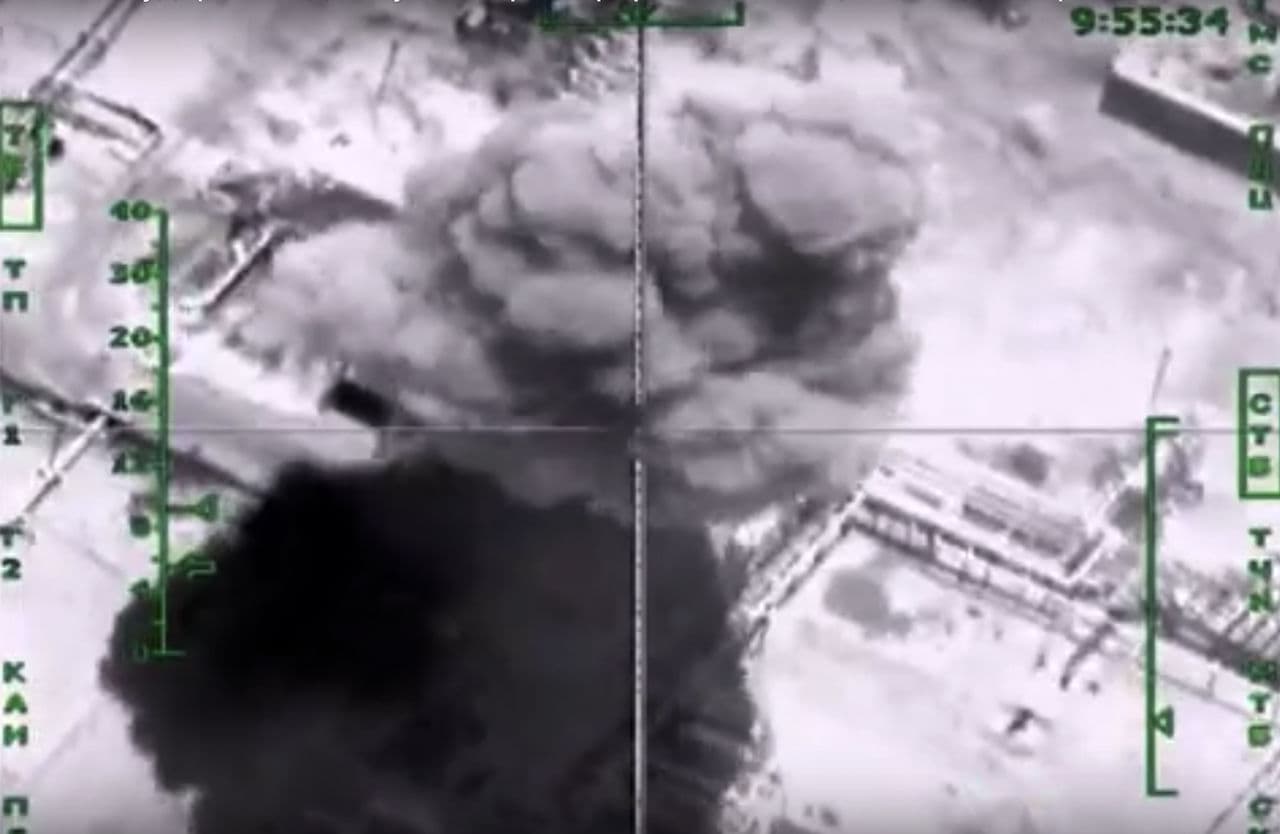Advertisement
Have We Reached A Tipping Point In The Fight Against ISIS?

After the shock of the Paris massacre, after the tears, the collective mind must focus: What can we do about ISIS?
Obama’s a wuss — it’s time to kick butt! say Republicans like Ben Carson, forgetting that our recent war making in the Middle East has made things worse, become a terror recruiter’s dream and soured the American public on military intervention. ISIS “cannot be contained, it must be defeated,” says Hillary Clinton, though her specific suggestions sound similar to what we’re doing now.
It’s the fault of those who voted for the Iraq War (like Clinton) because that “led to the rise of al-Qaida — and to -- ISIS,” says Bernie Sanders. Aside from the fact that reliving the past doesn’t point the way forward, Sanders is wrong: The war was a boon to al-Qaida, but that bunch had been in the homicide business long before, most savagely on 9/11, some 18 months before we invaded Iraq. And ISIS is as much a product of religious lunacy and dysfunctional Middle East governance as our misguided war.
ISIS, like al-Qaida before it, overreached with its French slaughter, hinting at the terror group’s weakness even as it demonstrates its worldwide capabilities.
Saner heads suggest a better route. They say ISIS, like al-Qaida before it, overreached with its French slaughter, hinting at the terror group’s weakness even as it demonstrates its worldwide capabilities. If we don’t make the same mistake of overreacting, we can help these psychopaths destroy themselves.
That ISIS is weak might seem ridiculous based on the headlines. Aren’t the Russians bombing terrorists in Syria precisely because Syrian tyrant Bashar al-Assad, Russia’s ally, was losing his civil war to rebels, including ISIS? Actually, writes French Islam scholar Olivier Roy, ISIS, comprised of Sunni extremists, is hemmed in by opponents who surround the territory it controls in Syria and Iraq. From Kurds in the north to Iraqi Shiites in the east to Russian-sheltered Alawites in the west to Lebanese and Jordanians in the south, Roy writes, no one in the neighborhood is buying what ISIS is selling.
And so, like a cornered viper, the Islamic State lashes out — not just in Paris but with the Halloween downing of a Russian airliner as well. But Russia is led by Vladimir Putin, and a thuggish ex-KGB officer is not a man you want to piss off. Having bombed mostly non-ISIS rebels in Syria, Putin appears poised to target more of those bombs at ISIS now, according to President Obama, with whom the previously antagonistic Putin is now making nice in the wake of ISIS’s murder of those 224 jet passengers.

Paris, too, may be the beginning of a slow-burn roasting for the Islamic State. Writing in Foreign Affairs magazine, Georgetown security studies professor Daniel Byman notes that attacking western nations stretches ISIS finances that are desperately needed for its Middle East war. Meanwhile, wanton killing risks alienating potential supporters. Were there any Muslims in that Parisian dance hall or soccer stadium that ISIS targeted this month? There will be some, somewhere that ISIS strikes, if it continues on this path — and indiscriminate killing cost al-Qaida much of its Muslim world support in the years after 9/11.
How to exploit these openings? Certainly not by plunging into another quagmire of a ground war in the Middle East. Experts from Jimmy Carter to Boston University terrorism researcher Jessica Stern say brokering an end to the Syrian civil war, which draws extremists to ISIS’s banner, is essential, and that means ending our demand for the instant ouster of Assad, as Carter wisely counsels.
Beyond that, containment, contrary to Clinton, is the only remaining strategy, though Stern notes it can be done better than we’re doing it now. Obama promised even more robust intelligence sharing with the French. Even granting that spies will be spies, prone to secrecy, it’s scary that we and our French friends who’ve jointly been bombing ISIS aren’t doing optimal intelligence sharing already.
If we don’t make the same mistake of overreacting, we can help these psychopaths destroy themselves.
Stern says containment also means “working with our allies to cut off the flows of foreign fighters and funding, continuing airstrikes, and deploying special forces against high-value targets. Our Arab allies, who are far more threatened by the Islamic State, need to step up to the plate militarily.” (Don’t hold your breath on that one. Roy notes those allies have enemies they consider more pressing than ISIS.)
Even the experts can overreact, and we must be alert to that. Some broach the topic of greater government surveillance, thought evidence that it works is scant, while evidence it will be abused is dispositive (remember Edward Snowden). Barring Syrian refugees, at least Muslim ones, the brainchild of some two dozen governors and all GOP presidential contenders, would slam the door on fellow terrorism victims and ignore the fact that homegrown recruits to terror, in Europe particularly, are vastly more the problem. (It’s certainly worth scrutinizing the already lengthy vetting process for refugees to see if we can better guard against radicalized militants, however.)
Containment — by diplomacy, careful military strategies such as air strikes and better intelligence — is maddeningly slow. Harsher military responses will always be on the table if intelligence shows a more credible ISIS threat to the U.S. than has been the case so far. But by embracing global terror, the Islamic State may have rushed into a bigger fight than it can handle. Reminds you of our war in Iraq, doesn’t it? Here’s hoping we learn from our mistakes.
